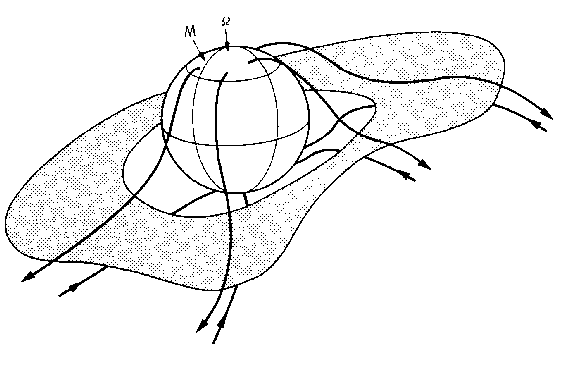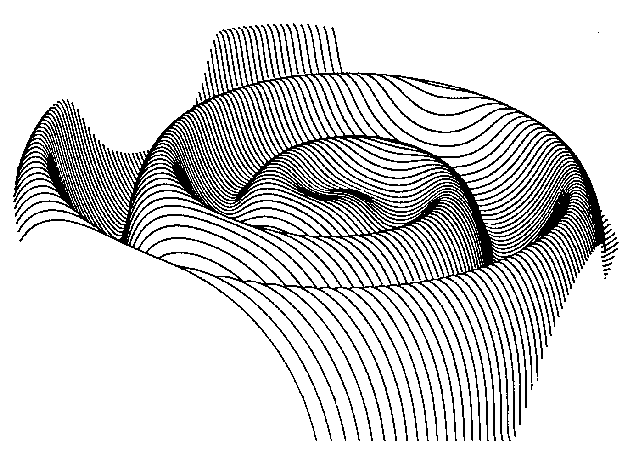The 3-D Shape of the HCS
 |
Three-dimensional sketch of the heliospheric current sheet. The current
sheet is shown lying near the solar equator with spiraled outward-pointing
fields lying above it and inward-pointing fields lying below it. The average
position of the current sheet is tilted relative to the solar equator, and
the current sheet also contains folds or flutes. When the sun rotates, an
observer near the ecliptic will alternately lie above and below the current
sheet and will see a changing sector pattern. [From Smith et al., 1978.]
|
 |
This sketch is a computer-generated perspective plot of the heliospheric
current sheet configuration expected from a flat, inclined sheet near
the sun, which is convected outward by a uniform velocity solar wind. The
inclination of the current sheet assumed in this diagram is 15 degrees.
Positive fields will be observed above the current sheet (during every other
phase of the solar cycle) and negative fields below. A stationary observer
near the solar equatorial plane will see two oppositely directed sectors
per solar rotation. It can be seen that both sectors will adopt the standard
Parker spiral configuration. [From Jokipii and Thomas, 1981.]
|
 |
Artist's rendition of the heliospheric current sheet for a slightly inclined
circular neutral line on a solar source surface. This drawing demonstrates
the three-dimensional structure of the current sheet as it would evolve in
a constant solar wind flow resulting in the usual two sector pattern. In
practice, a four-sector per solar rotation pattern (and sometimes even higher)
is quite usual implying that the 3-D shape of the HCS is even more complex
than shown on this picture.
|
References
Jokipii, J. R., and B. T. Thomas, Effects of drift on the transport of
cosmic rays, 5, Modulation by a wavy interplanetary current sheet,
Astrophys., J., 243, 1115, 1981.
Smith, E. J., B. T. Tsurutani, and R. L. Rosenberg, Observations of the
interplanetary sector structure up to heliographic latitudes of 16°:
Pioneer 11, J. Geophys. Res., 83, 717, 1978.


